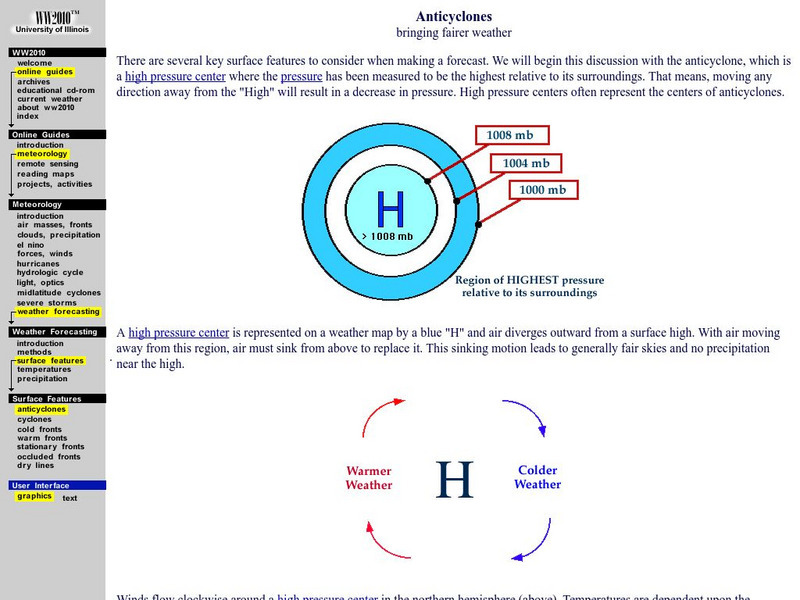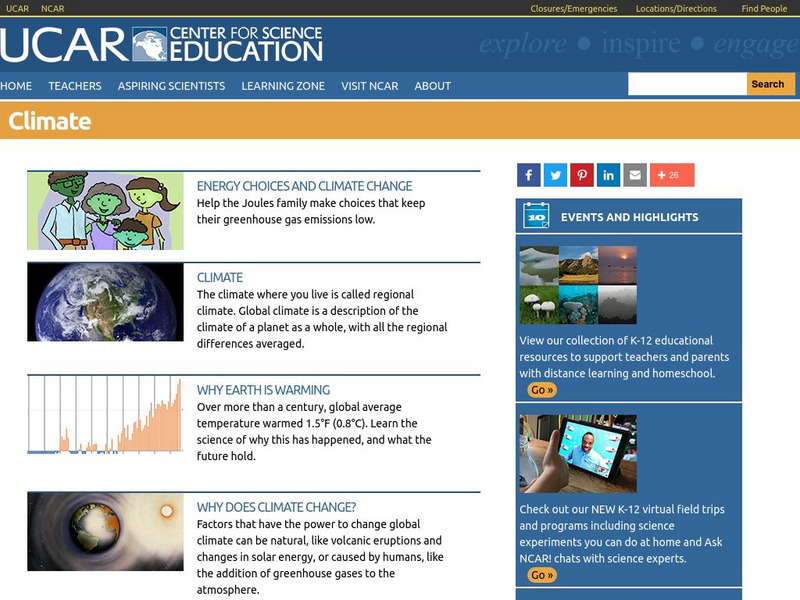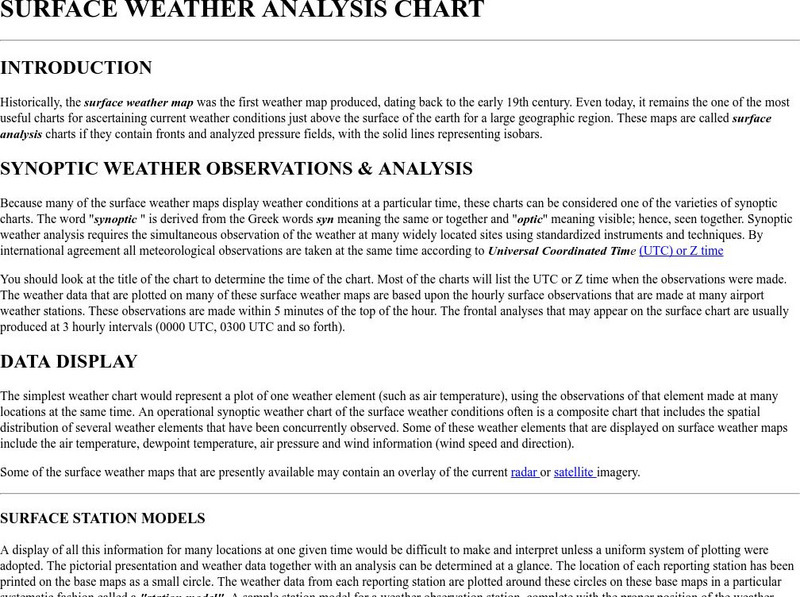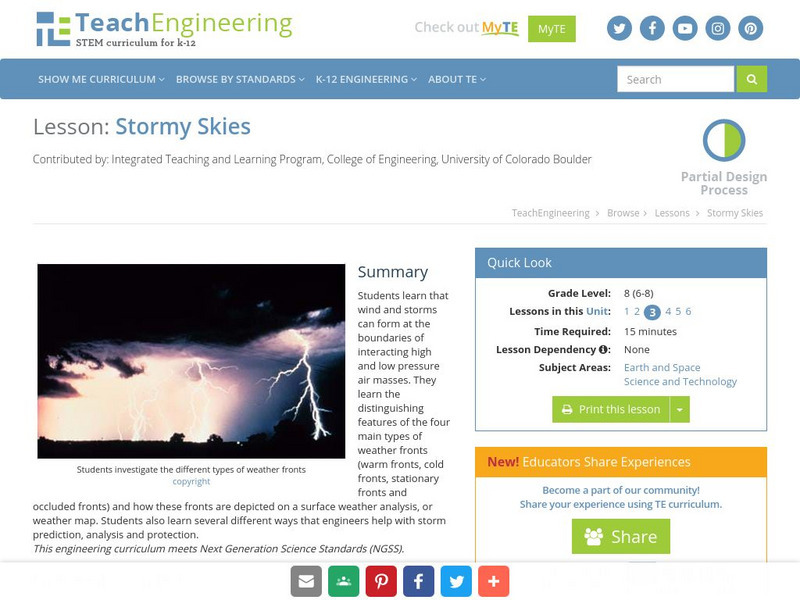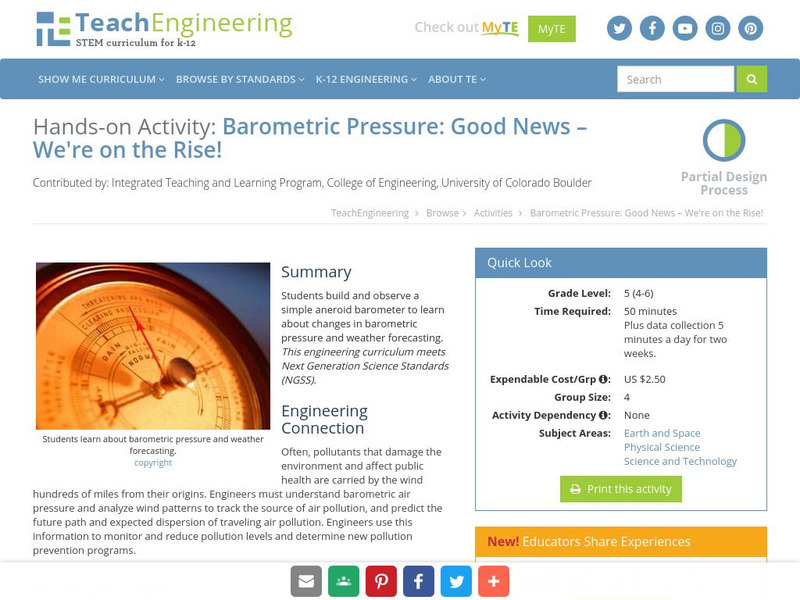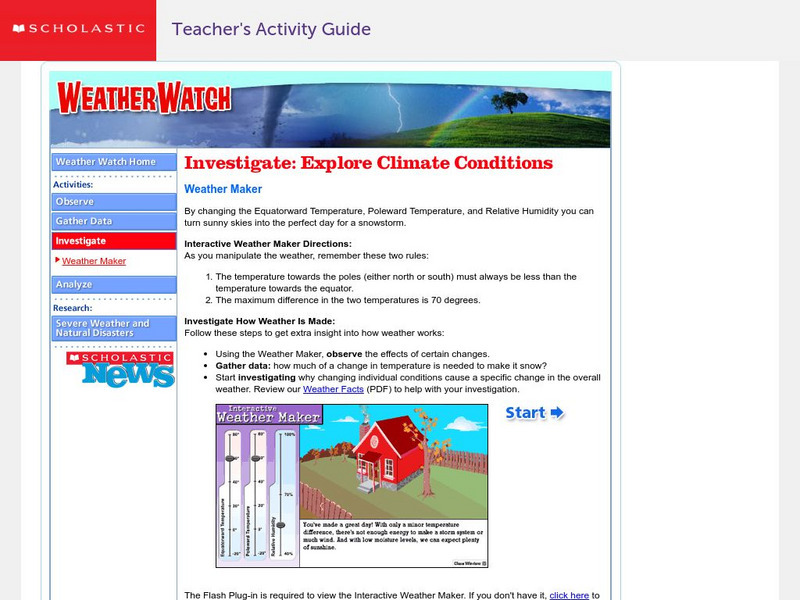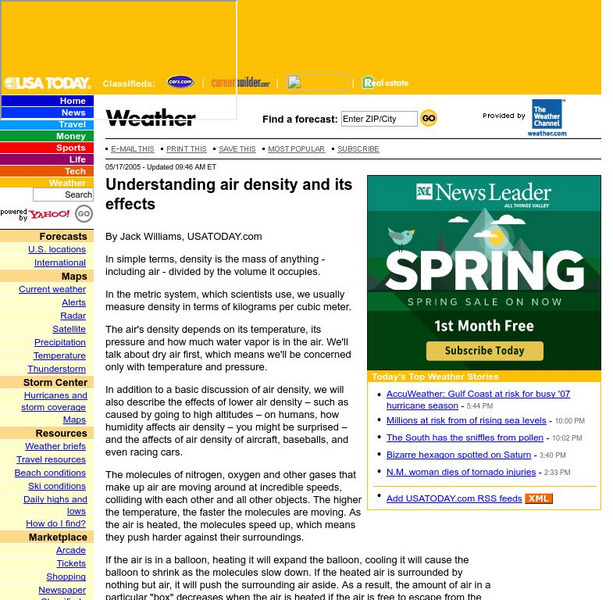Hi, what do you want to do?
USA Today
Usa Today: How a Low Pressure System Affects Weather
Discusses the fronts and weather patterns associated with low pressure areas.
Science Buddies
Science Buddies: How Does a Wind Meter Work?
On a windy day it is hard to keep your hat on. The power of the wind can even be strong enough to power large wind turbines to make electricity. In this experiment, find out how you can make your own instrument to measure the speed and...
University of Illinois
University of Illinois Urbana Champaign: Surface Features to Consider When Forecasting
This site looks at the important surface features to consider when making a forecast. High pressure and atmospheric pressure is explained. Be sure to use the arrows at the bottom to navigate through this site.
Read Works
Read Works: Weather: Air Patterns
[Free Registration/Login Required] An informational text about wind patterns and how they relate to clouds, storms, and lightning. A question sheet is available to help students build skills in reading comprehension.
American Geosciences Institute
American Geosciences Institute: Earth Science Week: Build Your Own Weather Station
Students are guided in how to build their own weather station that will measure temperature, humidity, precipitation, atmospheric pressure, and wind direction and speed.
University Corporation for Atmospheric Research
Ucar: Introduction to Climate
A detailed overview of the Earth's climate, with explanations about the difference between weather and climate, dendrochronology, palynology, and how Earth's climate has changed over time. All information is reinforced through pictures,...
University of Wisconsin
Atmospheric and Oceanic Sciences: Surface Weather Analysis
Explains the use of synoptic weather analysis in preparing weather maps and forecasting. Discusses the use of symbols as well.
Utah Education Network
Uen: What Is a Barometer?
Learn about the barometer and how it helps to predict the weather.
CK-12 Foundation
Ck 12: Plix Series: Gas Mixture and Molecular Speeds
[Free Registration/Login Required] Hike to the top of Mt. Everest and observe what happens to the amount of molecules pushing down on the surface of the Earth. After the activity, answer one challenge question about the topic.
TeachEngineering
Teach Engineering: Stormy Skies
Learners learn that wind and storms can form at the boundaries of interacting high and low pressure air masses. They learn the distinguishing features of the four main types of weather fronts (warm fronts, cold fronts, stationary fronts...
TeachEngineering
Teach Engineering: Good News We're on the Rise!
Students build and observe a simple aneroid barometer to learn about changes in barometric pressure and weather forecasting.
Scholastic
Scholastic: Investigate: Explore Climate Condition
An interactive weather maker allows students to manipulate temperature and humidity and to view the type of weather that results.
USA Today
Usa Today: Understanding Air Density and Its Effects
In simple terms, density is the mass of anything - including air - divided by the volume it occupies. In the metric system, which scientists use, we usually measure density in terms of kilograms per cubic meter. The air's density depends...
Curated OER
Weather Dude: The Sun
Weather site highlights the Sun and how it causes all of our weather. Discover how it affects air pressure and learn some interesting facts along the way.
University Corporation for Atmospheric Research
Ucar: Wind
Wind is air moving from a place that has higher pressure to one that has lower pressure. Sometimes wind is just a light breeze and other times it is strong enough to blow the roofs off buildings.








